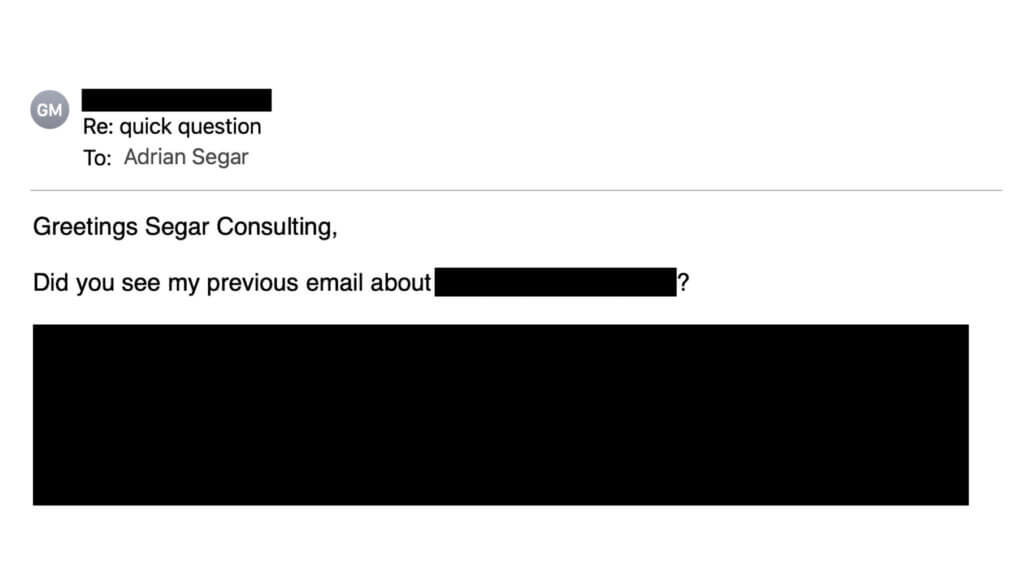 During my 40+ years of consulting, I’ve received countless phone calls and emails that begin with a rushed introduction, followed by the ominous phrase: “I have a quick question.”
During my 40+ years of consulting, I’ve received countless phone calls and emails that begin with a rushed introduction, followed by the ominous phrase: “I have a quick question.”
Beware!
In my experience, despite some folks’ naive explanations, this seemingly innocent phrase means one of two things:
- The person is trying to sell me something, or
- They know I charge for my time but want free advice.
The first—quick-question-as-sales-tool—is easy to deflect:
Q. “Can I set up a quick call to tell you about a product or service that will undoubtedly change your life?”
A. “No.”
The second approach is trickier. Perhaps my impressive expertise in answering the “quick question” will magically convince them to pay for my services!
The question may be quick, but the answer…
The real issue is that while the question may be “quick”, there’s no guarantee the answer will be short.
Q. What is the meaning of life?
A. ??????? [I’m pretty sure it’s not “42“.]
Occasionally, I don’t know the answer and can quickly tell the questioner, “Sorry, I don’t know about that,” perhaps referring them to someone who can help. But that’s rare. People don’t want to waste time asking someone unlikely to be helpful, so they usually have good reasons for reaching out to me.
Consulting as a dance
I’ve participated in hundreds of client-consultant conversations. I think of them as dances: mysterious, exciting, full of potential for creating something great, and, sometimes, unfortunately, disappointing.
In my experience, these contracting “minuets” can take as little as ten minutes or, let’s just say, far too long.
The Thirty-Minute Rule
So, if the questioner seems sincere, I invoke my Thirty-Minute Rule to avoid a never-ending dance.
The Thirty-Minute Rule is my reasonable compromise between the competing needs of a consultant and a client. It balances generosity with professionalism, while reinforcing the value of my expertise.
In consulting, “quick questions” often tread a fine line between goodwill and professional boundaries. While helping others builds relationships, my time and expertise are valuable. The Thirty-Minute Rule allows me to offer a fair compromise, demonstrating both generosity and respect for my professional worth. By setting clear limits, I ensure interactions remain productive and mutually beneficial.
After all, consulting is a dance that works best when both partners respect the steps.
